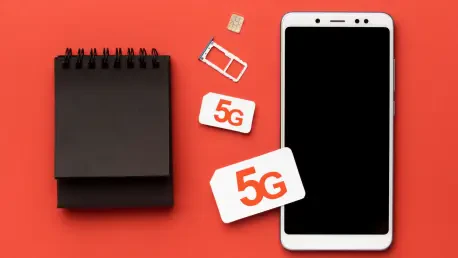

Setting the Stage for a Connectivity Boom in East Malaysia Imagine a region on the cusp of a digital revolution, where businesses, communities, and governments stand to gain unprecedented access to global markets through a single transformative infrastructure project. East Malaysia, particularly

Today, we’re thrilled to sit down with Vladislav Zaimov, a seasoned telecommunications specialist with deep expertise in enterprise solutions and risk management for vulnerable networks. With a keen eye on the evolving landscape of digital technology in Europe, Vladislav offers unique insights into

Imagine a silent void where a critical piece of technology, designed to unlock the secrets of space weather, suddenly stops responding just weeks after its launch into orbit, creating a tense situation for the mission team. This was the alarming reality for NASA’s Tandem Reconnection and Cusp

In an era where digital connectivity is the backbone of economic growth, a significant development has emerged in Southern Nevada that promises to reshape the business landscape. Cytranet, a leading fiber-optic broadband provider in the Southwest United States, has unveiled plans to bring its

In a groundbreaking stride toward modernizing military capabilities, SpaceX successfully launched 21 satellites on September 10 from Vandenberg Space Force Base in California, marking the inaugural step in the U.S. Department of Defense’s Proliferated Warfighter Space Architecture (PWSA)

In a striking testament to resilience and cutting-edge technology, SpaceX achieved a significant milestone by successfully launching the Nusantara Lima satellite for Indonesian operator PT Pasifik Satelit Nusantara on September 11 from Cape Canaveral Space Force Station in Florida. This mission,

In a landscape where telecom mergers often drag on for years with uncertain returns, T-Mobile has emerged as a standout by turning a significant acquisition into a masterclass of value creation. The $4.3 billion deal to acquire UScellular, finalized recently, has not only reshaped industry

Imagine a UK where seamless, high-speed internet is accessible not just in bustling city centers but also in remote rural villages and scenic National Parks, a vision that is rapidly becoming reality as EE, a leading mobile carrier under BT Group, pushes forward with an ambitious 5G Standalone (5G

In an era where network security is paramount, a critical vulnerability in wireless access points can send shockwaves through enterprise IT departments, raising urgent concerns. A recently disclosed flaw in Sophos AP6 Series Wireless Access Points, identified as CVE-2025-10159, has sparked

In an era where digital threats to industrial systems are escalating at an alarming rate, the recent announcement of Mitsubishi Electric's acquisition of Nozomi Networks has captured significant attention across the tech and industrial sectors. This strategic move positions two powerhouses—one a
ITCurated uses cookies to personalize your experience on our website. By continuing to use this site, you agree to our Cookie Policy